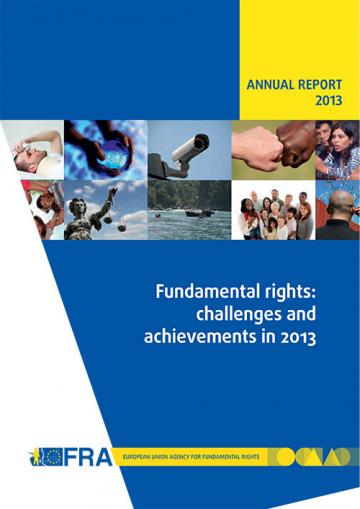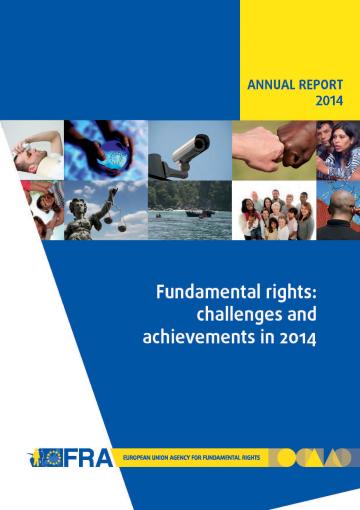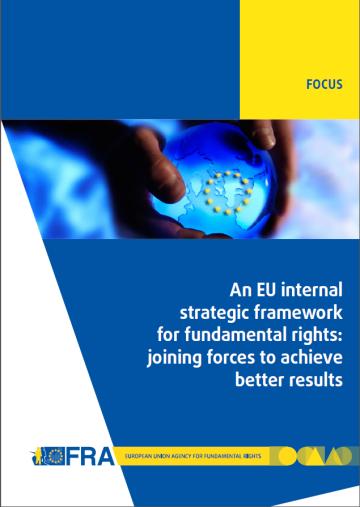
Fundamental rights: challenges and achievements in 2013 - Annual report 2013
The EU and its Member States took a variety of important steps in 2013 to protect and promote fundamental rights by assuming new international commitments, revamping legislation and pursuing innovative policies on the ground. Yet, fundamental rights violations seized the spotlight with distressing frequency: would-be migrants drowned off the EU’s coast, unprecedented mass surveillance, racist and extremist-motivated murders, child poverty and Roma deprivation.
In response, the EU completed a series of important legal reforms, particularly in asylum, while Member States worked to transpose the EU Victims’ Directive into national law and pursued their national Roma integration strategies. Still, new laws on the books do not necessarily transform the situation on the ground. Crisis-driven austerity measures raised some fundamental rights concerns. A persisting gap between law and practice troubled a broad spectrum of human rights observers, particularly in asylum policy, Roma integration and child and victims’ rights.
This year's report also features two new chapters, one on Roma integration following the drawing up of the national Roma integration strategies and a second looking at the EU Charter of Fundamental Rights and especially its use before national courts as it approaches its fifth anniversary as a binding document.
Download:
- FOCUS - An EU internal strategic framework for fundamental rights: joining forces to achieve better results (pdf 418KB)
- CHARTER - The EU Charter of Fundamental Rights before national courts and non-judicial human rights bodies (pdf 441KB)
- Chapter 1: Asylum, immigration and integration (pdf 833KB)
- Chapter 2: Border control and visa policy (pdf 602KB)
- Chapter 3: Information society, respect for private life and data protection (pdf 696KB)
- Chapter 4: The rights of the child and protection of children (pdf 679KB)
- Chapter 5: Equality and non-discrimination (pdf 563KB)
- Chapter 6: Racism, xenophobia and related intolerances (pdf 622KB)
- Chapter 7: Roma integration (pdf 775KB)
- Chapter 8: Access to justice and judicial cooperation (pdf 577KB)
- Chapter 9: Rights of crime victims (pdf 791KB)
- Chapter 10: EU Member States and international obligations (pdf 731KB) and related online tables and figures

